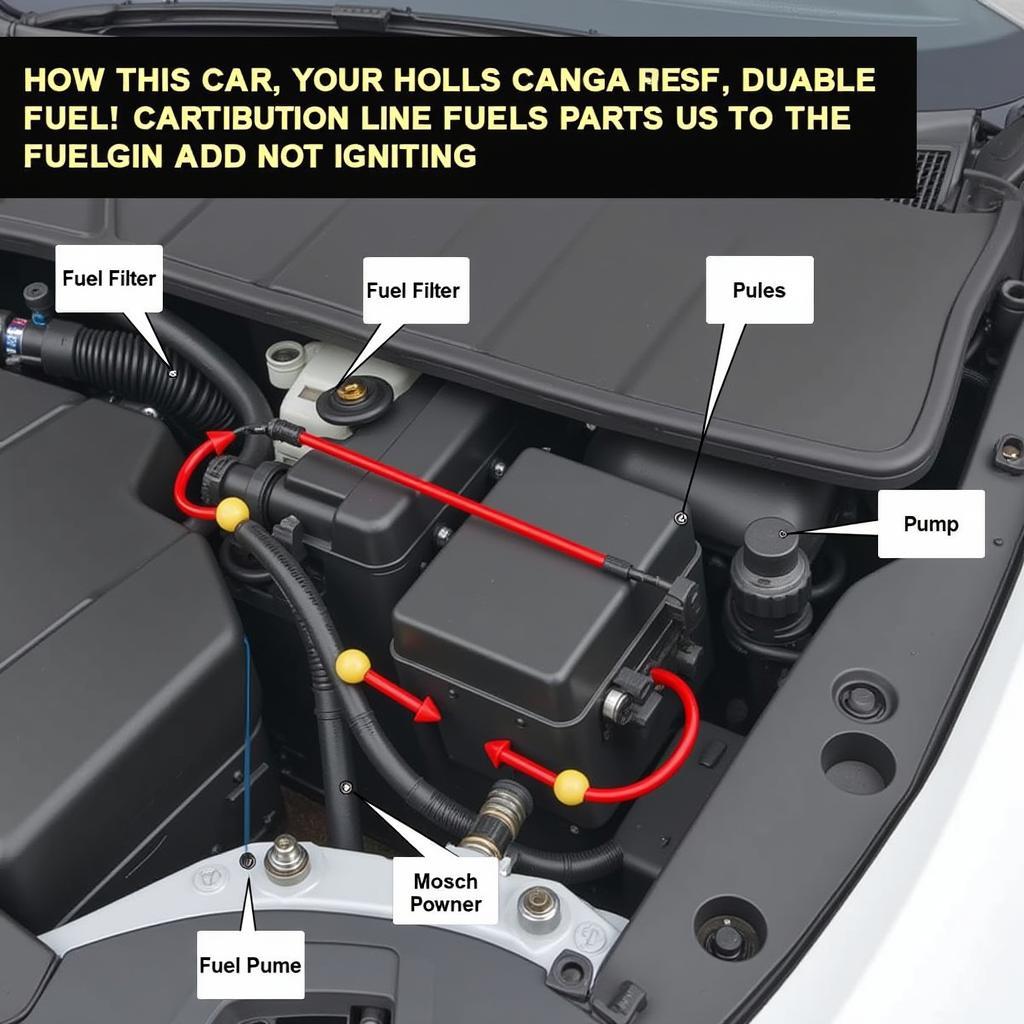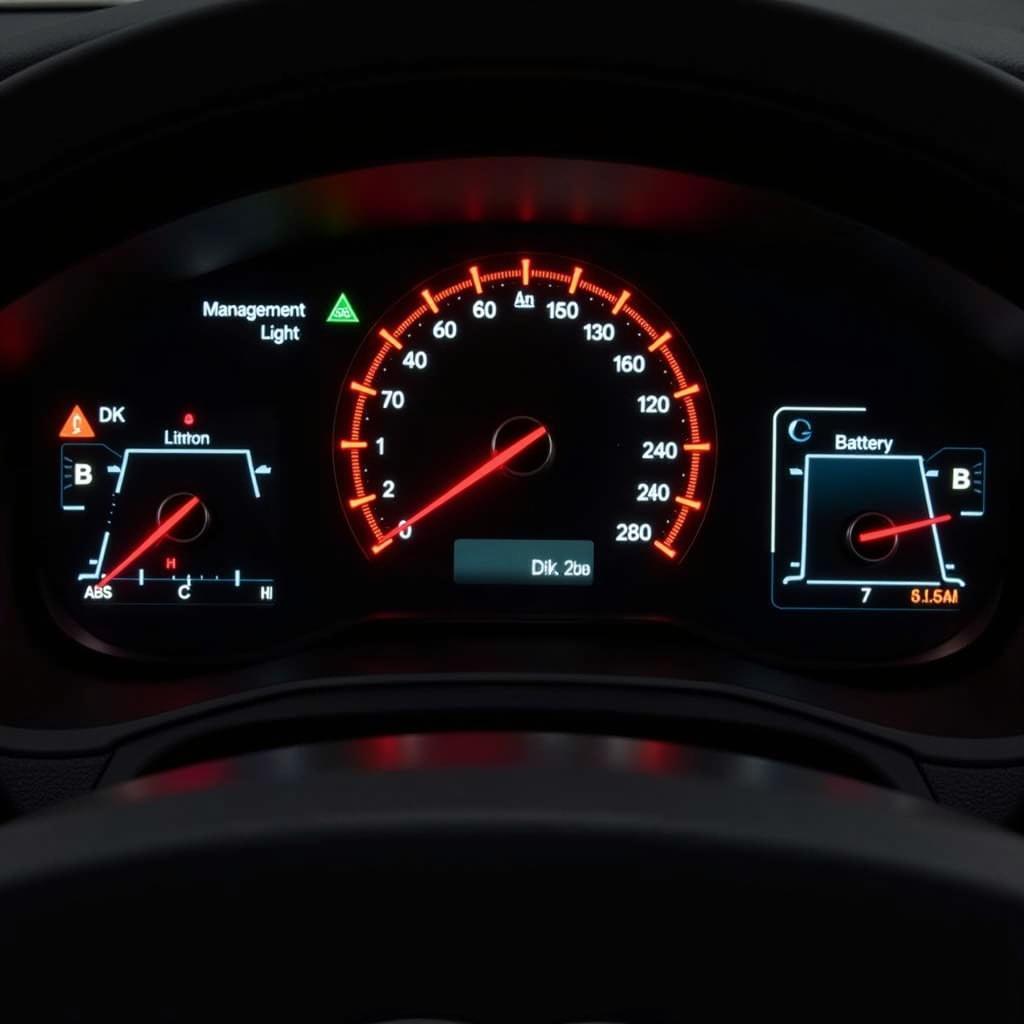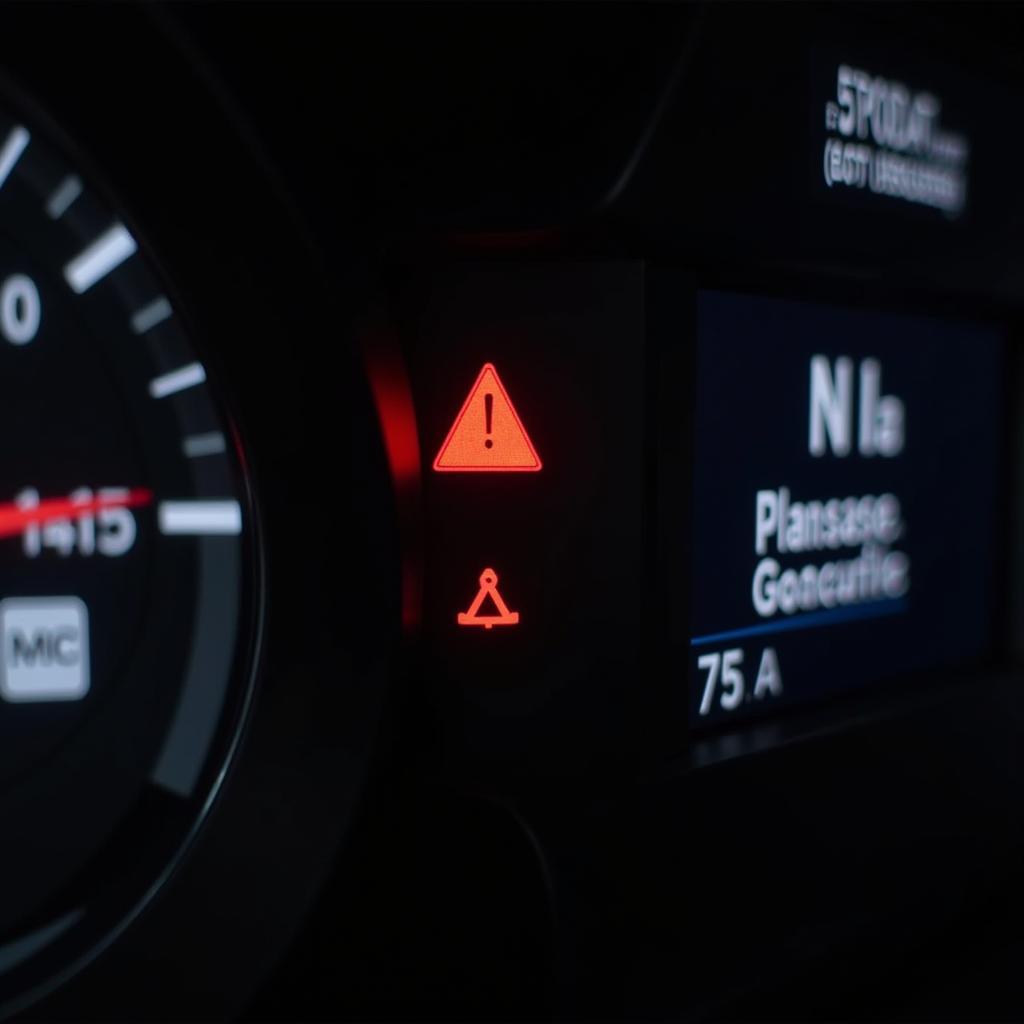A car that won’t ignite can be incredibly frustrating. Whether you’re late for work or stranded on the side of the road, this problem demands a swift solution. This article will guide you through the common causes of a car not igniting, from simple checks to more complex diagnostic procedures, empowering you to troubleshoot the issue effectively. Let’s dive in and get your car started. If you’re sure it’s not the battery, check our article on what to do when your car wont start but its not the battery.
Understanding Why Your Car Won’t Ignite
Before jumping into solutions, it’s crucial to understand what “won’t ignite” actually means. While often used interchangeably with “won’t start,” igniting specifically refers to the combustion process within the engine. This means the engine isn’t firing, even though you might hear the starter motor cranking. This distinction helps narrow down the potential culprits.
Common Culprits Behind a Car Not Igniting
Several issues can prevent your car from igniting. These range from simple fixes to more complex problems requiring professional attention. Here are some common culprits:
- Fuel System Issues: A lack of fuel, a clogged fuel filter, or a malfunctioning fuel pump can prevent fuel from reaching the engine.
- Ignition System Problems: Faulty spark plugs, worn ignition coils, or a damaged distributor can prevent the spark needed for combustion.
- Sensor Malfunctions: A faulty crankshaft sensor or camshaft sensor can disrupt the engine’s timing, preventing ignition.
- Mechanical Problems: Issues like low compression or a damaged timing belt can also prevent the engine from igniting.
 Car Engine Not Igniting Due to Fuel System Issues
Car Engine Not Igniting Due to Fuel System Issues
Diagnosing the Problem: A Step-by-Step Guide
If your car won’t ignite, don’t panic! Follow these steps to diagnose the issue:
- Check the Battery: While this article focuses on ignition issues, a weak battery can sometimes prevent the engine from cranking, mimicking an ignition problem. If your car has power but doesn’t crank, visit our resource on my car has power but wont crank.
- Listen for the Starter Motor: If you hear the starter cranking but the engine doesn’t catch, it’s likely an ignition problem.
- Check for Fuel: Ensure you have enough fuel in the tank. If you recently filled up, a faulty fuel gauge could be misleading you.
- Inspect the Spark Plugs: Remove a spark plug and check for damage or fouling. A strong spark should jump the gap when tested.
- Check for Diagnostic Codes: Use an OBD-II scanner to retrieve any diagnostic trouble codes (DTCs) stored in the car’s computer. These codes can pinpoint the specific problem area.
Remote Diagnostics and Software Solutions
As a specialist in remote automotive electrical diagnostics, programming, and software installation, I can often identify and resolve car ignition problems remotely. By accessing your vehicle’s computer system, I can analyze data, identify faulty sensors, and even reprogram certain modules to fix software glitches that prevent ignition. This can save you time and money compared to traditional diagnostic methods. For more complex scenarios when your car wont start and it’s not the battery, remote diagnostics can be particularly helpful.
Why Choose Remote Diagnostics?
Remote diagnostics offer several advantages:
- Convenience: No need to tow your car to a garage.
- Speed: Diagnoses and solutions can often be provided quickly.
- Cost-effectiveness: Can potentially save you money on towing and diagnostic fees.
“Remote diagnostics are transforming the automotive repair industry,” says John Smith, Automotive Electrical Engineer. “By leveraging technology, we can provide faster and more efficient solutions for car owners facing ignition problems.”
Preventing Future Ignition Problems
Regular maintenance is key to preventing ignition problems. Follow these tips:
- Regularly replace spark plugs and ignition coils.
- Keep your fuel system clean by using quality fuel and replacing the fuel filter as recommended.
- Address any check engine lights promptly.
- Schedule regular maintenance checks with a qualified mechanic. If your automatic transmission vehicle won’t start, consider checking our guide for automatic wont start.
Conclusion
A car that won’t ignite can be a major inconvenience. By understanding the common causes, following a systematic diagnostic approach, and considering remote diagnostic solutions, you can get your car back on the road quickly. Don’t let a car that won’t ignite ruin your day. If you’re experiencing this issue and your battery is working fine, refer to our guide on when your car not starting but battery working. Take proactive steps and keep your car running smoothly.



